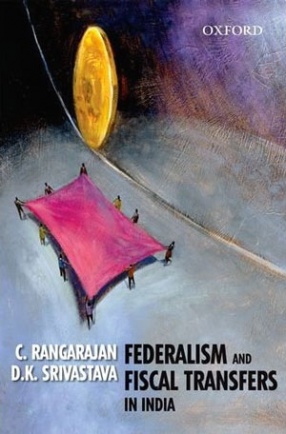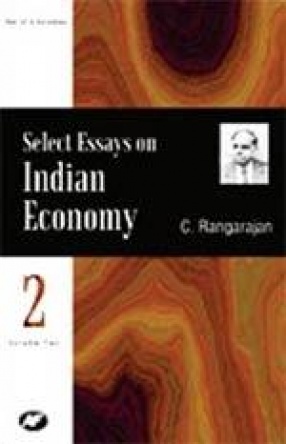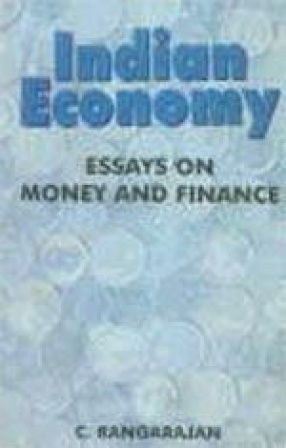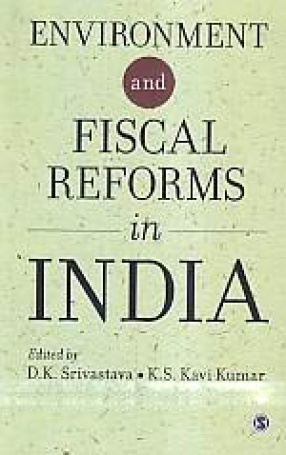The Finance Commission is the key institutional arrangement that has guided the functioning of fiscal federalism in India. Given the large differences in fiscal capacities and service standards across states, Rangarajan and Srivastava discuss the theoretical foundations and practical relevance of the design of fiscal transfers.
Focusing on the evolution of fiscal federalism in India, the essays engage with a wide array of inter-related issues including: Guiding principles determining fiscal transfers from the centre to the states; Distribution of these transfers among the states that differ in size, economic development, population, and geographical features; Management of central and state finances relating to sustainability of debt and fiscal deficit. The volume traces how the methodology used by successive Finance Commissions—including the Thirteenth Finance Commission—to resolve both vertical and horizontal imbalances, has changed over time. Comparing the design of fiscal transfers in two of the oldest federations, Australia and Canada, with the system of transfers in India, the book emphasizes the need for an institutional arrangement to keep the growth of central and state debts within prudent limits.
ABOUT THE AUTHOR C. Rangarajan
Dr. C. Rangarajan D is presently the Chairman of the Twelfth Finance Commission. Earlier, he was Governor of Andhra Pradesh for five years (1997-2003) and just before that he was Governor, Reserve Bank of India for five years (1992-1997). As Governor RBI, Dr. Rangarajan gave a major thrust to financial sector reforms. The institutional environment was altered to make monetary policy a more effective instrument of economic policy. The exchange rate regime underwent a fundamental change. He was member of the Planning Commission during 1991-92. Prior to that he held the position of Deputy Governor, Reserve Bank of India, for almost a decade. During this period, he was instrumental in bringing about a number of changes in the credit and financial system, both in terms of induction of new instruments and new institutions. Dr. Rangarajan has been a member of the Economic Advisory Council to the Prime Minister between 1985 and 1991. He was the Chairman of the National Statistical Commission which was set up to reform the Indian Statistical System. He has taught at the Wharton School of Finance & Commerce, University of Pennsylvania and the Graduate School of Business Administration, New York University. In India, he has taught at Loyola College, Madras; University of Rajasthan, Jaipur; Indian Statistical Institute, New Delhi and for well over a decade and a half at the Indian Institute of Management, Ahmedabad. He is the author or co-author of the following books : Short-term Investment Forecasting (1974); Principles of Macroeconomics (1979); Strategy for Industrial Development in the '80s (1981); Innovations in Banking (1982); Indian Economy: Essays on Money and Finance (1998); Perspectives on Indian Economy (2000); and Structural Reforms in Industry, Banking and Finance (2000). Many of his analytical writings have been published in various national and international journals. Among the several awards received by him are : Business Man of the Year 1997 (Madras Management Association); Honorary Fellow, Indian Institute of Management, Ahmedabad 1997; Award of Excellence in Finance (Bank of India) 1998; Finance Man of the Decade (Bombay Management Association)1998; Financial Express Award for Economics 1998; Wharton-Indian Alumni Award for Outstanding Leadership (2002). Dr. Rangarajan was awarded Padma Vibhushan by the President of India in January, 2002.
ABOUT THE AUTHOR D K Srivastava
Dr. D.K. Srivastava is presently Director, Madras School of Economics, Chennai. He was a Member of the Twelfth Finance Commission, Principal Consultant to the Eleventh Finance Commission, and Economic Advisor to the Tenth Finance Commission. He has had a long association with the National Institute of Public Finance and Policy, New Delhi where he worked as Senior Banaras Hindu University during 1984-1996. He has also taught at the University of Allahabad and at the University of the West Indies, Jamaica. He was a Stanley Smith Fellow at the University of St. Andrews, United Kingdom during 1978-80. Dr. Srivastava studied at Allahabad University, and later at the University of St. Andrews, United Kingdom for M.Litt, and Ph.D. He was a National Merit Scholar and a Commonwealth Scholar in the United Kingdom. He was honoured by the award of the Tassie Medallion of Adam Smith at the University of St. Andrews, United Kingdom. Dr. Srivastava's teaching and research interests are in the fields of Public Finance and Macroeconomics. He is the author of a number of books, reports, and articles. Dr. Srivastava has written extensively on Budgetary Subsidies and edited a volume on Fiscal Federalism in India. Contemporary Challenges.










There are no reviews yet.